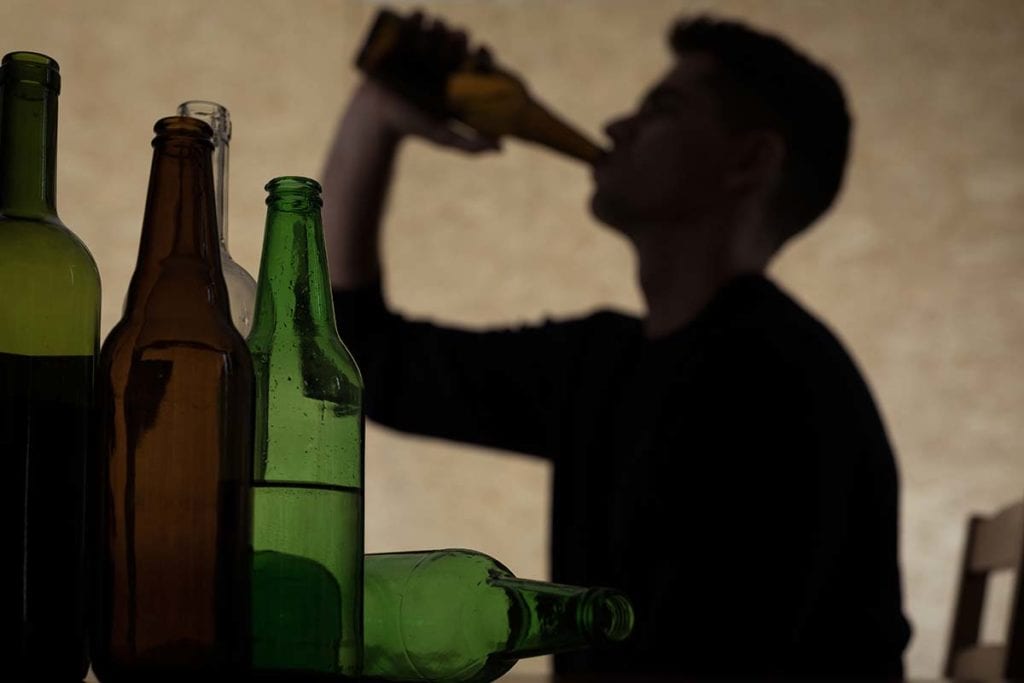[vc_row][vc_column][vc_column_text]We know that one of the most effective treatments for alcohol dependence is a cognitive behavioral therapy program. It can be challenging to convince some individuals that they need to go into a rehab program or counseling because of an alcohol use problem. They ask us, “How addictive is alcohol?” They reason that since it is legal and socially acceptable to drink, then it can’t be that dangerous. It’s not like it’s heroin or cocaine, after all. The problem with this thinking is that alcohol is very addictive. The very things that make it socially acceptable can add to how addictive it is. After we explain what constitutes addiction, the next question we are often asked is: “Am I Addicted to Alcohol?” Let’s discuss both these questions.
The Nature of Addiction
To answer the question about how addictive is alcohol, we need to consider the nature of addiction. Anything that triggers the serotonin and other feel-good chemicals in the reward center of your brain can become addictive. This includes things that aren’t even considered drugs or alcohol. Some people have brains that are naturally susceptible to the effects these chemicals have on the brain. When you put a substance into your body that overloads your brain by releasing too many of the chemicals, your brain starts to shut down its natural production. You become dependent upon the substance to release them and produce that feeling. In time, all you think about is the feeling you get when you indulge.
How addictive is alcohol? When you consider these factors, the answer is very addictive. Let’s look at this another way.
Comparing Alcohol to Other Drugs
How addictive is alcohol? Researchers and scientists have designed a scale of addiction that takes into account several factors about a substance. These are:
- Dependence – based on relapse rate
- Withdrawal – How bad are the withdrawal symptoms?
- Tolerance – How much time does it take for a user to need more to reach the same level?
- Reinforcement – How likely is a user to seek out more of this substance, and how often?
- Intoxication – How “high” does the substance get you?
When you take the overall score into account, alcohol is shown to be more addictive than almost all other substances. Only heroin has a higher overall score. How addictive is alcohol? It is among the most addictive substances.[/vc_column_text][/vc_column][/vc_row][vc_row][vc_column][vc_raw_html]JTNDZGl2JTIwY2xhc3MlM0QlMjJwaWt0b3dyYXBwZXItZW1iZWQlMjIlMjBzdHlsZSUzRCUyMmhlaWdodCUzQSUyMDMwMHB4JTNCJTIwcG9zaXRpb24lM0ElMjByZWxhdGl2ZSUzQiUyMiUyMGRhdGEtdWlkJTNEJTIyNDc0MDE0NjItaG93LWFkZGljdGl2ZS1pcy1hbGNvaG9sJTIyJTNFJTNDZGl2JTIwY2xhc3MlM0QlMjJwaWt0by1jYW52YXMtd3JhcCUyMiUzRSUzQ2RpdiUyMGNsYXNzJTNEJTIycGlrdG8tY2FudmFzJTIyJTNFJTNDZGl2JTIwY2xhc3MlM0QlMjJlbWJlZC1sb2FkaW5nLW92ZXJsYXklMjIlMjBzdHlsZSUzRCUyMndpZHRoJTNBJTIwMTAwJTI1JTNCJTIwaGVpZ2h0JTNBJTIwMTAwJTI1JTNCJTIwcG9zaXRpb24lM0ElMjBhYnNvbHV0ZSUzQiUyMHRleHQtYWxpZ24lM0ElMjBjZW50ZXIlM0IlMjIlM0UlM0NpbWclMjB3aWR0aCUzRCUyMjYwcHglMjIlMjBhbHQlM0QlMjJMb2FkaW5nLi4uJTIyJTIwc3R5bGUlM0QlMjJtYXJnaW4tdG9wJTNBJTIwMTAwcHglMjIlMjBzcmMlM0QlMjJodHRwcyUzQSUyRiUyRmNyZWF0ZS5waWt0b2NoYXJ0LmNvbSUyRmxvYWRpbmcuZ2lmJTIyJTJGJTNFJTNDcCUyMHN0eWxlJTNEJTIybWFyZ2luJTNBJTIwMCUzQiUyMHBhZGRpbmclM0ElMjAwJTNCJTIwZm9udC1mYW1pbHklM0ElMjBMYXRvJTJDJTIwSGVsdmV0aWNhJTJDJTIwQXJpYWwlMkMlMjBzYW5zLXNlcmlmJTNCJTIwZm9udC13ZWlnaHQlM0ElMjA2MDAlM0IlMjBmb250LXNpemUlM0ElMjAxNnB4JTIyJTNFTG9hZGluZy4uLiUzQyUyRnAlM0UlM0MlMkZkaXYlM0UlM0MlMkZkaXYlM0UlM0MlMkZkaXYlM0UlM0MlMkZkaXYlM0UlM0NzY3JpcHQlM0UlMjhmdW5jdGlvbiUyOGQlMjklN0J2YXIlMjBqcyUyQyUyMGlkJTNEJTIycGlrdG8tZW1iZWQtanMlMjIlMkMlMjByZWYlM0RkLmdldEVsZW1lbnRzQnlUYWdOYW1lJTI4JTIyc2NyaXB0JTIyJTI5JTVCMCU1RCUzQmlmJTIwJTI4ZC5nZXRFbGVtZW50QnlJZCUyOGlkJTI5JTI5JTIwJTdCJTIwcmV0dXJuJTNCJTdEanMlM0RkLmNyZWF0ZUVsZW1lbnQlMjglMjJzY3JpcHQlMjIlMjklM0IlMjBqcy5pZCUzRGlkJTNCJTIwanMuYXN5bmMlM0R0cnVlJTNCanMuc3JjJTNEJTIyaHR0cHMlM0ElMkYlMkZjcmVhdGUucGlrdG9jaGFydC5jb20lMkZhc3NldHMlMkZlbWJlZGRpbmclMkZlbWJlZC5qcyUyMiUzQnJlZi5wYXJlbnROb2RlLmluc2VydEJlZm9yZSUyOGpzJTJDJTIwcmVmJTI5JTNCJTdEJTI4ZG9jdW1lbnQlMjklMjklM0IlM0MlMkZzY3JpcHQlM0U=[/vc_raw_html][/vc_column][/vc_row][vc_row][vc_column][vc_column_text]
Am I Addicted to Alcohol?
Several indicators can determine if you are addicted to alcohol. Ask yourself some of the most common questions and answer honestly. The more answers you give a “Yes” to, the higher the likelihood you are dealing with an addiction to alcohol. Start with these questions:
- Do you have trouble limiting the amount you drink to one or two drinks?
- If you don’t drink, do you find yourself irritable and experiencing frequent mood changes.
- Did you stop attending most social functions if you won’t be able to drink while there?
- Have friends and family expressed their concern about your drinking habits?
- Have you tried to stop drinking but found yourself returning to old habits, especially as soon as something goes wrong in your life?
There are other indicators that a professional can help you answer. However, if you answered ‘yes’ to even a couple of these questions, you are at least dealing with a problem that is leading to addiction. Now is an excellent time to seek help.
Recovery Begins With a Promise
At Promises Behavioral Health, we believe that healing starts with two promises. The first is that you are making yourself a promise that you will try with all you have to beat your addiction. The second is our promise to you that we will support you in this endeavor in every way possible. Together, we can keep these two promises and have you living a life full of promise before you know it. Contact us today. 844.875.5609
[/vc_column_text][/vc_column][/vc_row]

